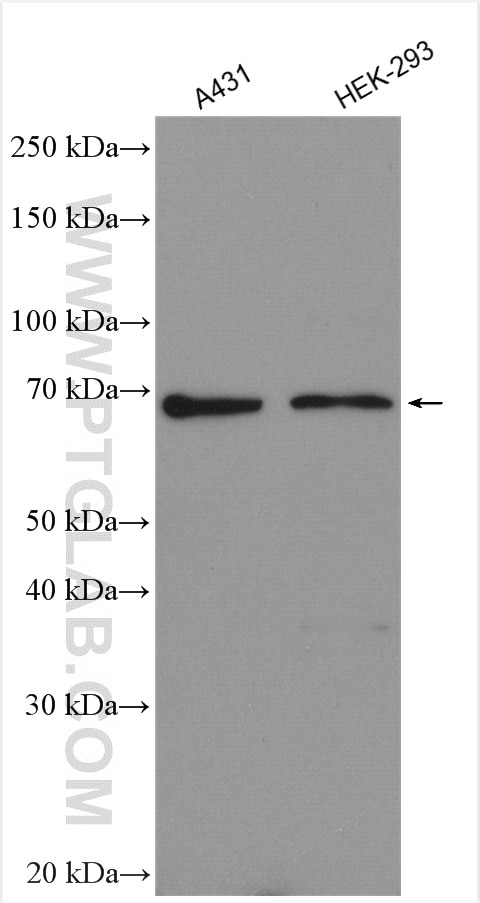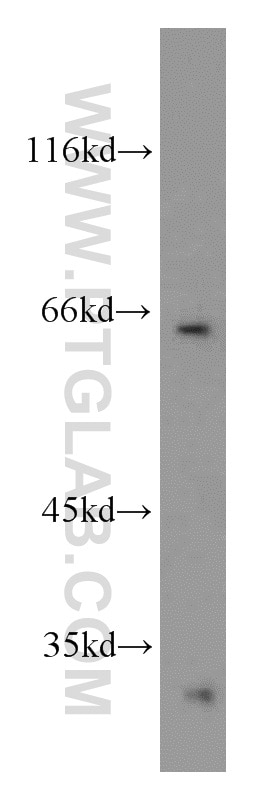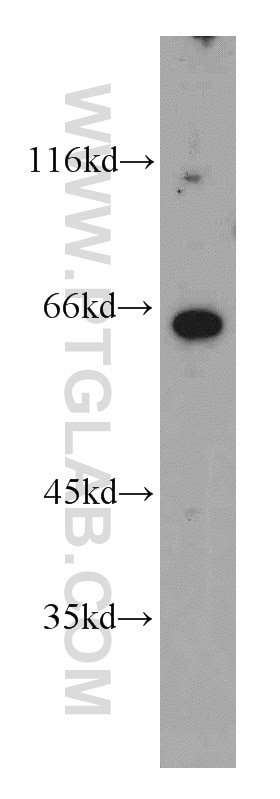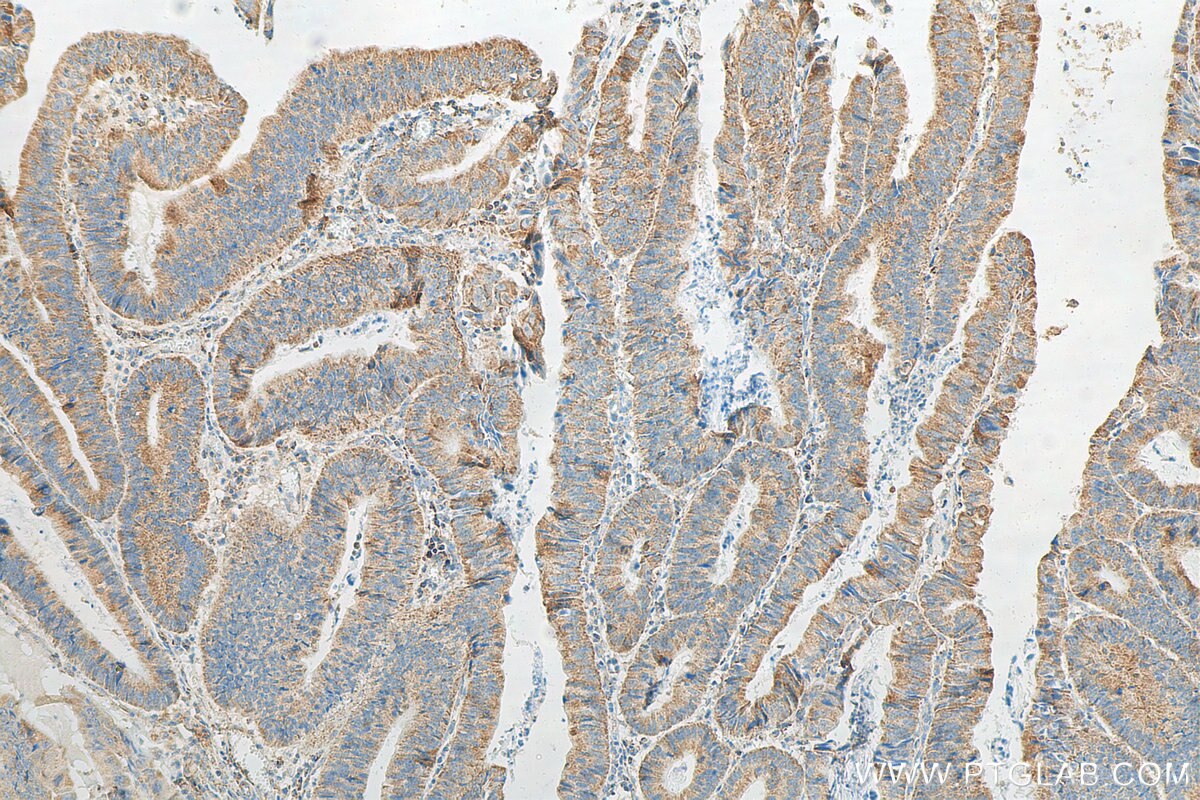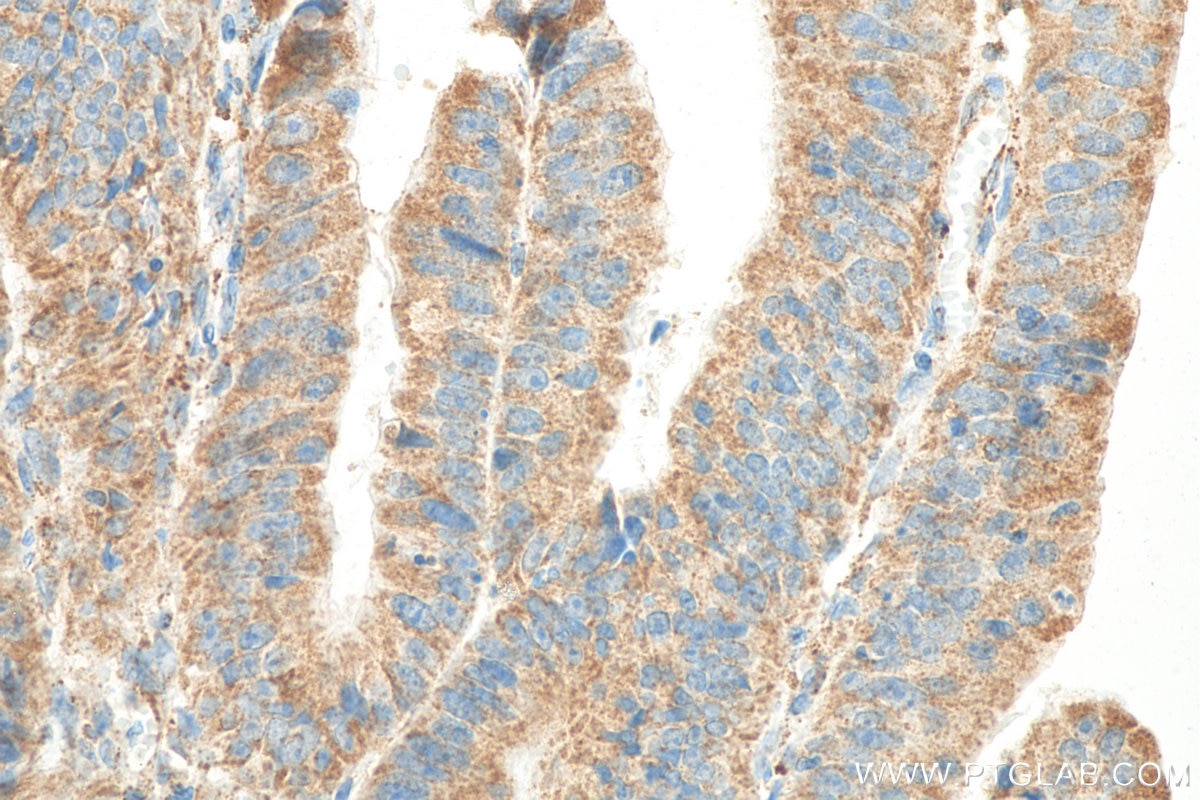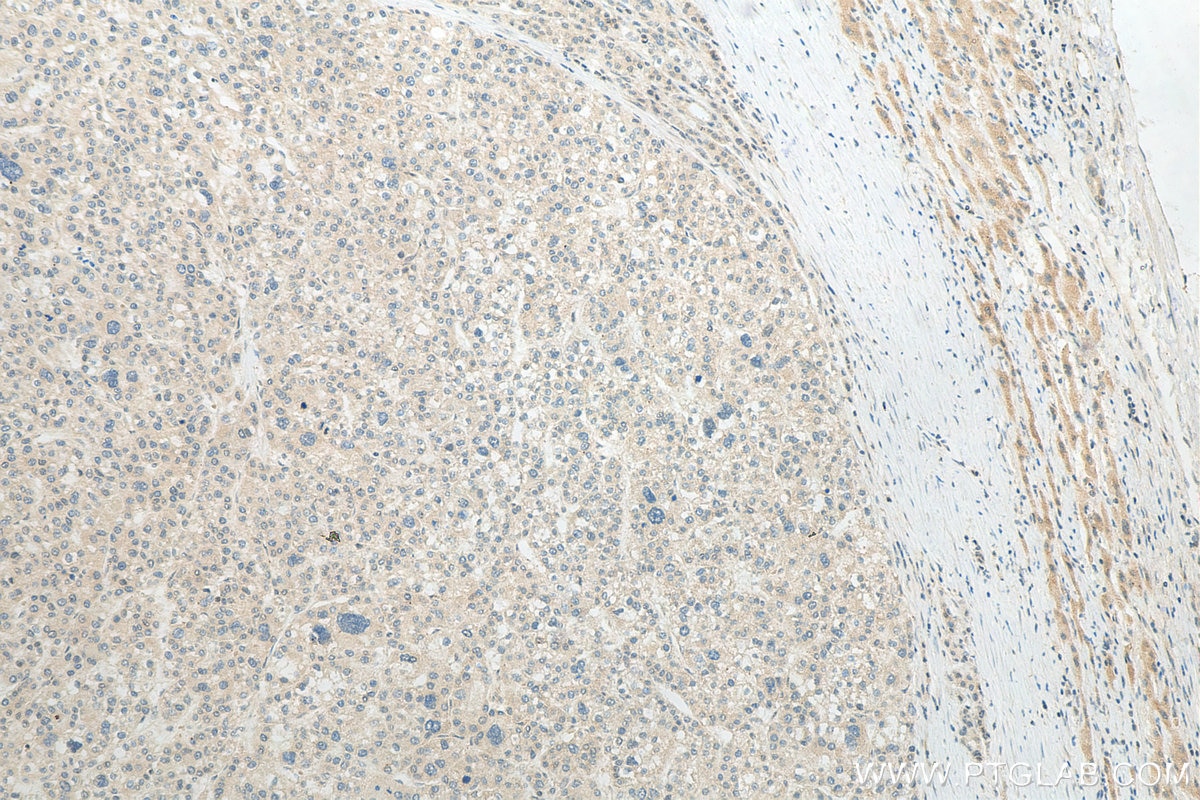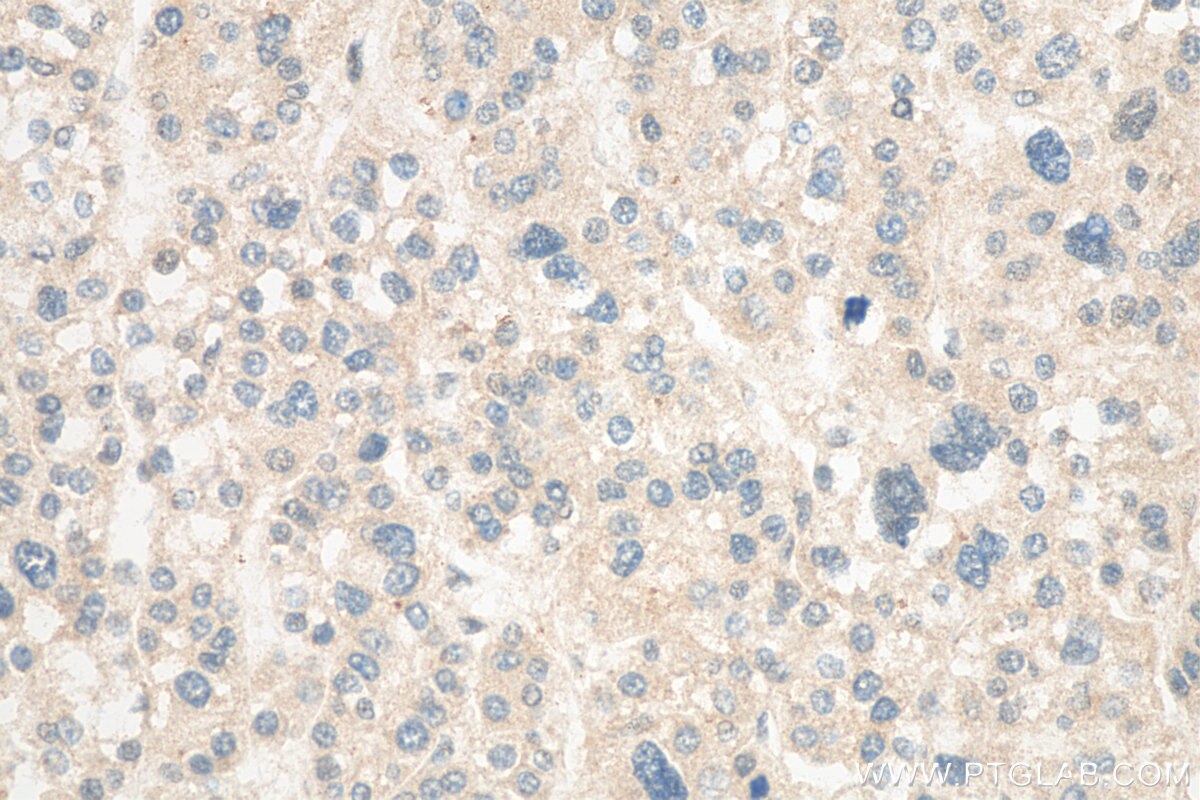Progranulin/PGRN Polyklonaler Antikörper
Progranulin/PGRN Polyklonal Antikörper für WB, IHC, Indirect ELISA
Wirt / Isotyp
Kaninchen / IgG
Getestete Reaktivität
human
Anwendung
WB, IHC, Indirect ELISA
Konjugation
Unkonjugiert
Kat-Nr. : 10053-1-PBS
Synonyme
Geprüfte Anwendungen
Produktinformation
10053-1-PBS bindet in WB, IHC, Indirect ELISA Progranulin/PGRN und zeigt Reaktivität mit human
| Getestete Reaktivität | human |
| Wirt / Isotyp | Kaninchen / IgG |
| Klonalität | Polyklonal |
| Typ | Antikörper |
| Immunogen | Progranulin/PGRN fusion protein Ag0010 |
| Vollständiger Name | granulin |
| Berechnetes Molekulargewicht | 64 kDa |
| Beobachtetes Molekulargewicht | 64 kDa |
| GenBank-Zugangsnummer | BC010577 |
| Gene symbol | Granulin |
| Gene ID (NCBI) | 2896 |
| Konjugation | Unkonjugiert |
| Form | Liquid |
| Reinigungsmethode | Antigen-Affinitätsreinigung |
| Lagerungspuffer | PBS only |
| Lagerungsbedingungen | Store at -80°C. 20ul Größen enthalten 0,1% BSA. |
Hintergrundinformationen
GRN, also known as PGRN or PCDGF, is a cysteine-rich protein of 68.5 kDa that is typically secreted into a highly glycosylated 88 kDa form. PGRN is a unique growth factor that plays an important role in cutaneous wound healing. It has an anti-inflammatory effect and promotes cell proliferation. When PCDGF is degraded to several 6-25 kDa fragments, called granulins (GRNs) by neutrophil proteases, a pro-inflammatory reaction occurs. PGRN is widely expressed, particularly in epithelial cells, immune cells, neurons, and chondrocytes. High levels of PGRN expression have been reported in human cancers, and its expression is closely correlated with the development and metastasis of several cancers. The recent discovery that mutations in the gene encoding for pro-granulin (GRN) cause frontotemporal lobar degeneration (FTLD), and other neurodegenerative diseases leading to dementia, has brought renewed interest in progranulin and its functions in the central nervous system. Several in vitro studies have revealed that PGRN is classified into two isoforms according to its glycosylation status, the glycosylated immature isoform (58-68 kDa) and the fully glycosylated mature secretory isoform (∼88 kDa) (PMID: 25838514).
